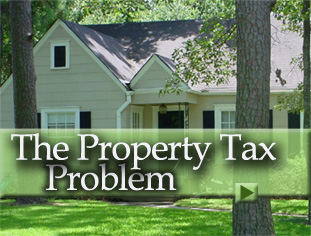Taxes and Local Control
 In my district, and most of the ones around me, you can pick any issue you would like, and I all but guarantee you that, these days, it takes a back seat to the issue of skyrocketing property taxes.
In my district, and most of the ones around me, you can pick any issue you would like, and I all but guarantee you that, these days, it takes a back seat to the issue of skyrocketing property taxes.While we can debate ad nauseum the root cause or real fix for the problem, in the interim we are presently trying to lessen the dramatic negative impact that these taxes are having on residents in Cook County. (And by the way, to the extent that higher taxes result in less disposable consumer income, this is a problem for local businesses as well.)
We are hoping to call the "7% bill" for a vote this week, and everybody concerned can acknowledge that it will be a close vote. Yesterday, Crain's outlined a Civic Federation report on this issue, which stated in part:
Chicago homeowners would face a median increase of 36.4% in their 2006 property tax bills — up from 10.6% otherwise — if the General Assembly does not extend a 7% annual cap on most residential assessment hikes, according to a new report by the Civic Federation. Business groups say the cap shifts the tax burden to them, but the the Chicago tax-policy group says the value of residential property is growing so fast that, even with the cap, the median bill for industrial property will drop 10.8%, with a 4% median decline on office and retail buildings. The federation supports a three-year extension of the cap. (emphasis added)As to the cries of doom from the opponents of the bill, I proffer this tidbit from the Tribune's article on the issue:
But the study found that commercial, industrial and apartment properties in Chicago are already expected to see their taxes go down in 2007, with or without the cap in place. Taxes on those properties would drop even further if the law were allowed to expire and more of the burden were shifted back to homeowners. (emphasis added)
Although it is not a replacement for comprehensive reform of the property tax system, the `7% cap' has contributed residential stability to the Cook County property tax system by both limiting and smoothing annual increases in the taxable value of homestead properties," the report says. "The Civic Federation believes that the benefits of the [law] outweigh its costs in terms of tax burden shifted to non-homestead properties and homestead properties that are appreciating slowly."Interestingly, what I find most telling about the issue has nothing to do with taxes. People, especially conservatives, are always talking about local control. Here we have a bill that is rooted in that very concept. There is nothing mandatory about the bill, it is opt-in legislation that allows a county to implement the provisions if it so chooses. Those county officials eventually have to stand before voters and answer for their actions.
It is hard to imagine a Representative from another county arguing that allowing Cook (or any other) County to implement this measure would negatively impact their constituents. During my ten years in the Legislature, I have supported countless local control measures for other regions. I hope that my colleagues will allow us to take those steps necessary to address our issues now.
Sometime soon, when I am not under the weather, we can take up the whole debate of how we assess properties, how we fund schools, etc. I just don't have the energy or time to really delve into it now.